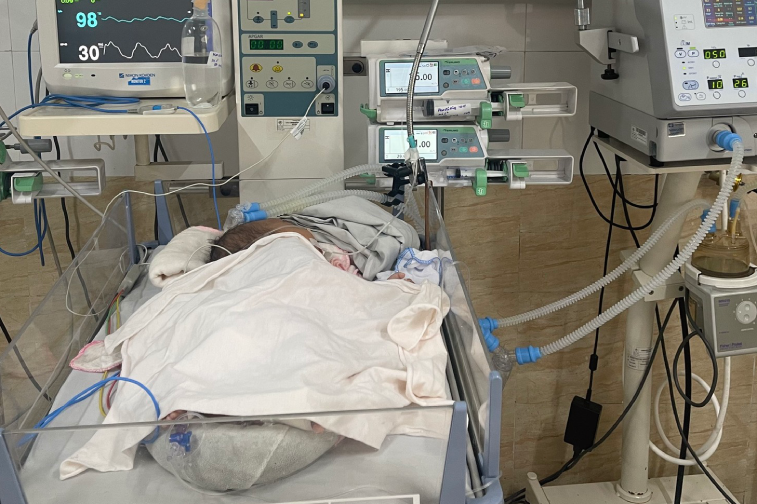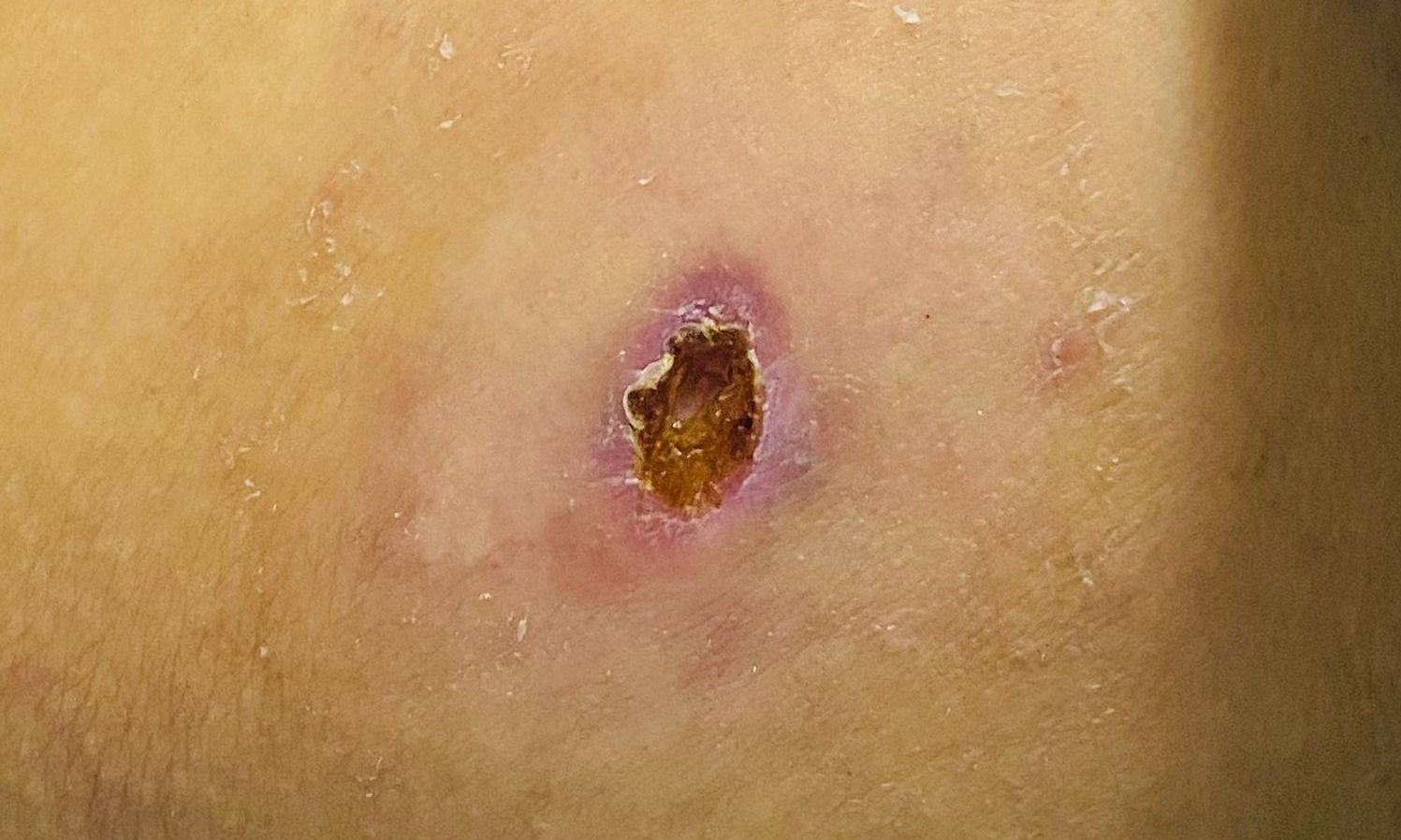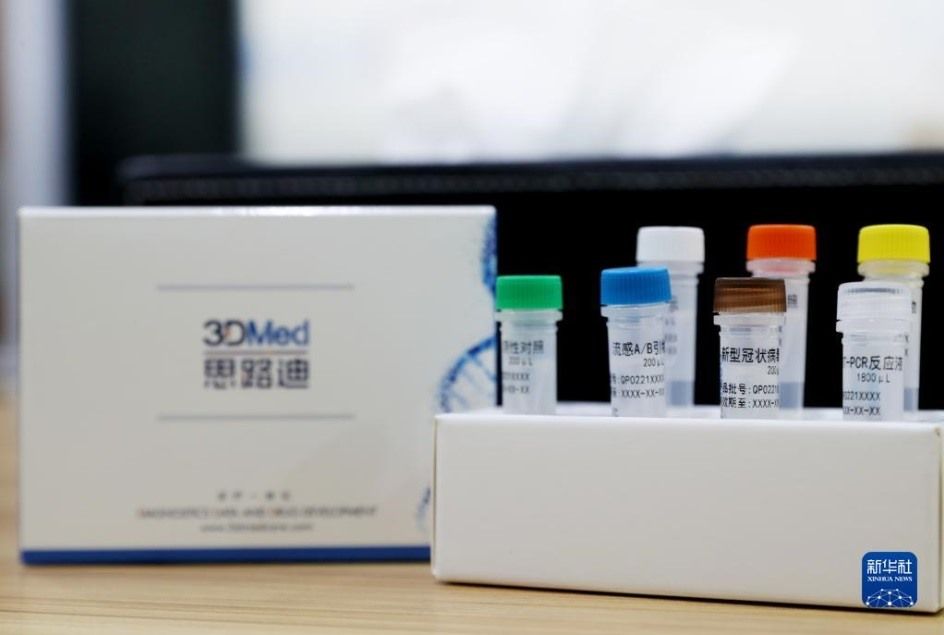RSV - the leading cause of illness in children
- Although respiratory syncytial virus (RSV) is not new, it is the leading cause of illness in young children.

According to some statistics, up to 90% of children are infected with this virus in the first 2 years of life.
Causes damage to the respiratory system
Every year, during the change of season, the number of cases of respiratory syncytial virus (RSV) coming to hospitals tends to increase. In particular, the virus causes severe complications in young children and those with underlying medical conditions.
RSV is a common global cause of lower respiratory tract infections in young children. The disease often appears at the time of changing seasons, especially Fall - Winter or Spring - Summer (from October to March every year).
Respiratory syncytial virus (also known as RSV virus) is a virus that causes respiratory infections such as nasopharyngitis, bronchiolitis, bronchitis, pneumonia...
Recently, on average every day, Yen Lap District Medical Center (Phu Tho) receives and examines 40 children. Of these, the Department of Pediatrics treated 70 children. Of these, 70% of children have respiratory infections caused by RSV virus.
According to Doctor Dinh Thi Thu Hien - Deputy Head of the Department of Pediatric Internal Medicine - Yen Lap District Medical Center, every year, around February to April in our country, young children, the elderly and people with weak immunity are hospitalized for treatment. Treatment of respiratory syncytial virus infection, causing widespread epidemics.
However, this year, since mid-September, Northern hospitals have received hundreds of cases of respiratory syncytial virus infection. At the department, for every 10 children examined for respiratory diseases, there are up to 7 cases of this disease.
Previously, Hung Vuong General Hospital (Phu Tho) also said it had provided emergency treatment to critically ill pediatric patients due to RSV infection. The patient is a boy named PHD (39 days old, residing in Thanh Ba district, Phu Tho).
The patient's mother said that the child coughed a lot and breastfed poorly for 2 days. After that, the child had difficulty breathing so he was taken to the emergency hospital, tested positive for RSV and immediately transferred to the Department of Pediatrics, Hung Vuong General Hospital.
The child was admitted to the hospital in a state of groaning breathing, many long pauses in breathing accompanied by cyanosis, and the blood oxygen index dropped severely, threatening his life. Realizing that the child was in serious respiratory distress, the Pediatric Department doctors immediately provided emergency aid, intubated the child on a ventilator, and provided supportive treatment. After 4 days of mechanical ventilation, the child's condition improved. The child was weaned off the machine and transferred to oxygen for 4 days. Children's health gradually stabilizes.
Recently, doctors from the Department of Pediatrics - Hung Vuong General Hospital have admitted many children infected with RSV to the hospital in a state of respiratory failure who need respiratory support, treatment and monitoring at the hospital.
Currently, the danger of RSV virus has been threatening the health of children, especially children under 2 years old. If not detected early and treated properly, respiratory infections caused by RSV virus will cause serious health complications, even threatening the child's life.
According to Doctor Dinh Xuan Hoang - Head of the Department of Pediatrics, Hung Vuong General Hospital, RSV is a virus that is highly contagious through the respiratory tract, close contact such as kissing, holding hands... This virus causes damage. Children's respiratory system such as bronchiolitis, bronchitis, pneumonia...
Doctor Hoang said that when a child shows signs of high fever or no fever, coughing, wheezing, sneezing, not feeding, rapid breathing, chest constriction, the baby should be taken to the hospital for examination immediately.
Mild symptoms similar to a cold Meanwhile, the Respiratory Department - National Children's Hospital has 4 rooms treating children infected with respiratory syncytial virus. Among them, 1 room contains many serious pediatric patients. Hospitalized children all have the same symptoms.
According to doctors at the National Children's Hospital, although respiratory syncytial virus (RSV) is not new, it is the leading cause of illness in young children. At the same time, it is a common global cause of lower respiratory tract infections in all age groups. According to some statistics, up to 90% of children are infected with this virus in the first 2 years of life, especially children under 6 months old and newborns with weak immune systems.
RSV virus infection can cause clinical syndromes ranging from mild cold-like symptoms to manifestations of respiratory tract infections, bronchitis, pneumonia, asthma exacerbations and wheezing. Early diagnosis of the disease will help reduce hospital stay, antibiotic use and treatment costs for pediatric patients.
Dr. Hoang Thi Bich Ngoc - Head of Microbiology Department, National Children's Hospital said that the RSV agent has receptors for respiratory epithelium, especially bronchial epithelium. RSV includes RSV A, RSV B. This virus has many forms of evading the body's immune response. Therefore, children are susceptible to reinfection. Direct diagnostic methods are common, including antigen detection and nucleic acid amplification.
Meanwhile, according to Associate Professor, Dr. Tran Thanh Tu - Head of the International Center, National Children's Hospital, early detection of the disease is a very important factor to prevent the risk of worsening and complications.
However, the clinical symptoms of RSV are nonspecific and may overlap with other viral respiratory infections as well as some bacterial infections. Therefore, testing is needed to differentiate RSV.
Furthermore, RSV vaccines are still in the research process. Therefore, disease prevention needs to be based on non-specific factors, such as: Regularly wash children's hands, especially when recently exposed to cases showing flu symptoms.
At the same time, it is necessary to feed children with adequate nutrition. Keep the environment clean and cool. Clean your child's nose, throat, body, and wash hands regularly. When going out, you need to wear a mask.
* SOURCE: https://Giaoducthoidai.vn/rsv-can-nguyen-hang-dau-gay-benh-o-tre-post657943.html









 Facebook
Facebook
 Tweet
Tweet
 Zalo
Zalo







 News
News

















 Sign in with Facebook
Sign in with Facebook
 Sign in with Google
Sign in with Google